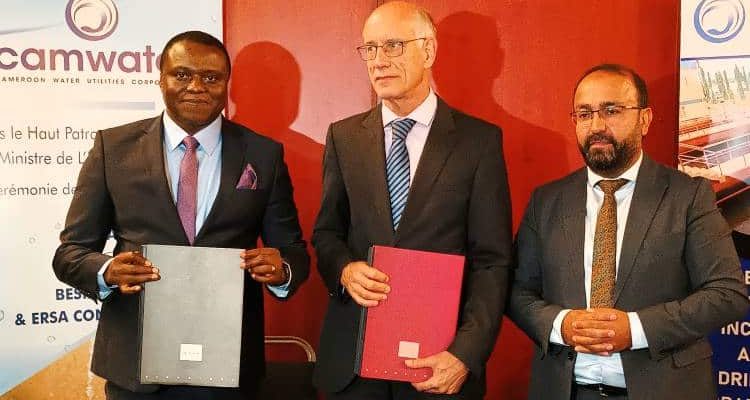As the need for drinking water increases in the economic capital Douala, Cameroon Water Utilities (Camwater) has announced the signing of two partnership agreements with Besix and Ersa Construction for the implementation of the Douala drinking water distribution network reconfiguration project. The aim is to inject 400,000 m3 of water a day into the city's distribution network.
The project to reconfigure Douala’s drinking water distribution network is entering a new phase. Cameroon Water Utilities (Camwater) recently chose the Belgian construction group Besix and Ersa Construction, based in Istanbul, Turkey, to implement this water project in Cameroon’s economic capital. The partnership agreements were signed recently in Yaoundé by Camwater’s Managing Director, Blaise Moussa, and the Managing Directors of Besix and Ersa Construction, Philippe Dessoh and Zekeriya Ersin Oktem respectively.
According to Camwater, the aim is to produce an additional 400,000 m3 of drinking water per day for the residents of Douala and the surrounding area. This will increase the city’s production capacity to 703,400 m3 per day, compared with the 303,400 m3 per day estimated for 2021.
Start of works in 2024
Besix and Ersa Construction will build new raw water pumping stations on the Wouri river. The primary, secondary and tertiary networks will be extended. Storage facilities will also be strengthened. Camwater currently has a storage capacity of 67,900 m3 for 129,697 subscribers to the drinking water network in the city of Douala. The project also provides for new connections to the water network, given that the economic capital has a population of around 4 million.
Read Also – CAMEROON: Camwater to increase water supply in 11 towns by 2025
Besix and Ersa Construction have 36 months, i.e. until December 2027, to complete all the work on the project to reconfigure the drinking water distribution network in the city of Douala. The project, which is due to start in 2024, is expected to cost 125 billion CFA francs, or nearly 190.6 million euros.
Inès Magoum






